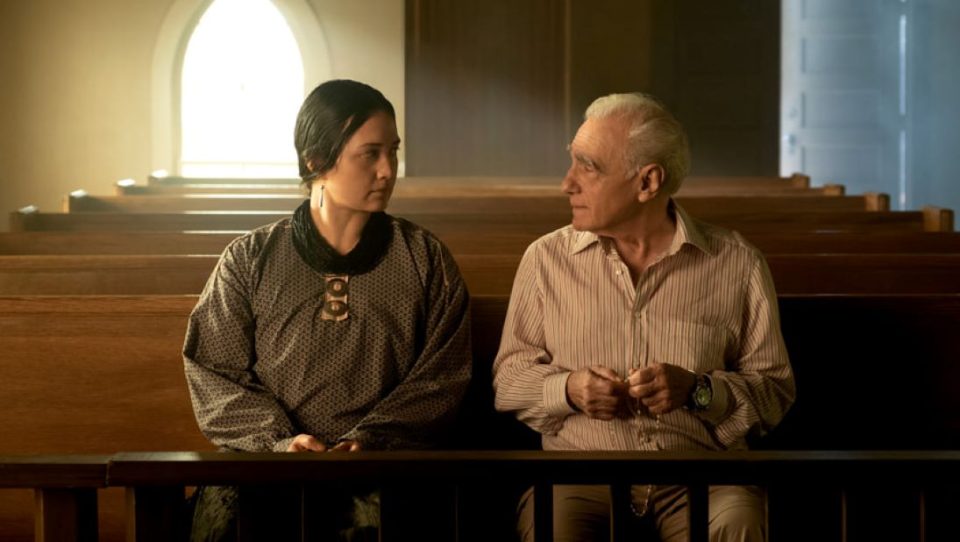Kōichi Shikishima doesn’t recognize his hometown. When he left his Tokyo neighborhood to fight in World War II, promises of victory and glory filled him. He returned to ruins and angry neighbors.
“How is this possible?” neighbor Sumiko (Sakura Ando) asks Kōichi (Ryunosuke Kamiki) as she stumbles out of what’s left of her house to face the young man wearing a uniform of the Japanese military. “Weren’t you a kamikaze pilot?”
When Kōichi doesn’t answer, Sumiko comes to her own conclusion: Kōichi has failed. He refused to fight to the death against the Allies, which Sumiko treats as de facto collusion in the destruction they wrought throughout Tokyo. “You have the nerve to show your face?” she demands, before describing the decimation of her village, including the lives of her children.
From the look on Kōichi’s face, viewers sense that he asks himself another question, even more serious and terrifying: “How do I live?”
That scene comes from Godzilla Minus One, the Japanese monster movie that became a surprise hit in the United States. The movie owes its success in part to the excellent filmmaking of writer-director Takashi Yamazaki. Moreover, it also captured the imaginations of moviegoers by homing in on one of the key questions of our day: How do I live?
Kōichi’s question recurs throughout many of the best movies of 2023. In fact How Do I Live? is the original title of the latest masterpiece from legendary animation director Hayao Miyazaki, called The Boy and the Heron internationally. It’s the question that Gloria (America Ferrara) asks in director Greta Gerwig’s Barbie when her adult life is filled with sadness, cellulite and other things not promised by the beloved toy line. It’s the question that scientist J. Robert Oppenheimer (Cillian Murphy) asks when visions of charred bodies interrupt a triumphant speech in director Christopher Nolan’s Oppenheimer.
The question “How do I live?” recurs throughout many of the best movies of 2023.
These movies pose the question of living with stakes great and small. Sometimes it’s a personal loss that drives characters forward, serving as motivation for the ornate action scenes in director Chad Stahelski’s John Wick: Chapter 4, for the addictive visits to the afterlife in co-directors Danny and Michael Philippou’s horror film Talk to Me or for the tender love affair between neighbors Adam (Andrew Scott) and Harry (Paul Mescal) in director Andrew Haigh’s All of Us Strangers.
Even more pressing in the year’s best films is the question of life in response to systemic injustice. Some movies respond with humor, as when author “Monk” Ellison (Jeffery Wright) constructs a false identity in director Cord Jefferson’s satire American Fiction. Others respond with spectacle, exemplified by heroes Miles Morales (Shameik Moore) and Gwen Stacy (Hailee Steinfeld) in the animated superhero movie Spider-Man: Across the Spider-Verse, co-directed by Joaquim Dos Santos, Kemp Powers and Justin K. Thompson. Director Daniel Goldhaber’s How to Blow Up a Pipeline illustrates living in resistance in its depiction of a group of misfits who gather to stop an oil company.
Scripture offers some direct answers to the question of how to live. Romans 12:1 declares, “I appeal to you therefore, brothers and sisters, on the basis of God’s mercy, to present your bodies as a living sacrifice, holy and acceptable to God, which is your reasonable act of worship.”
Many 2023 movies offer a glimpse of what a living sacrifice looks like, none more surprising than director Martin Scorsese’s historical epic Killers of the Flower Moon. The film makes no excuses for the white supremacy that drives William King Hale (Robert De Niro) and other white people in early-20th-century Oklahoma to kill members of the Indigenous Osage Nation in pursuit of their land and wealth. Nor does it deify central victim Mollie Burkhart (Lily Gladstone), portraying both her hurt and her resilience. Instead, Scorsese and his collaborators confess their complicity in the systems that allowed the crime to happen, building to a surprising metatextual ending.
With that approach, Killers of the Flower Moon answers the question posed by several other 2023 movies. We live by seeking justice, repenting from sins and caring for others. Or, as we Christians put it, we live as living sacrifices, continuing Christ’s work against even horrendous evils.






